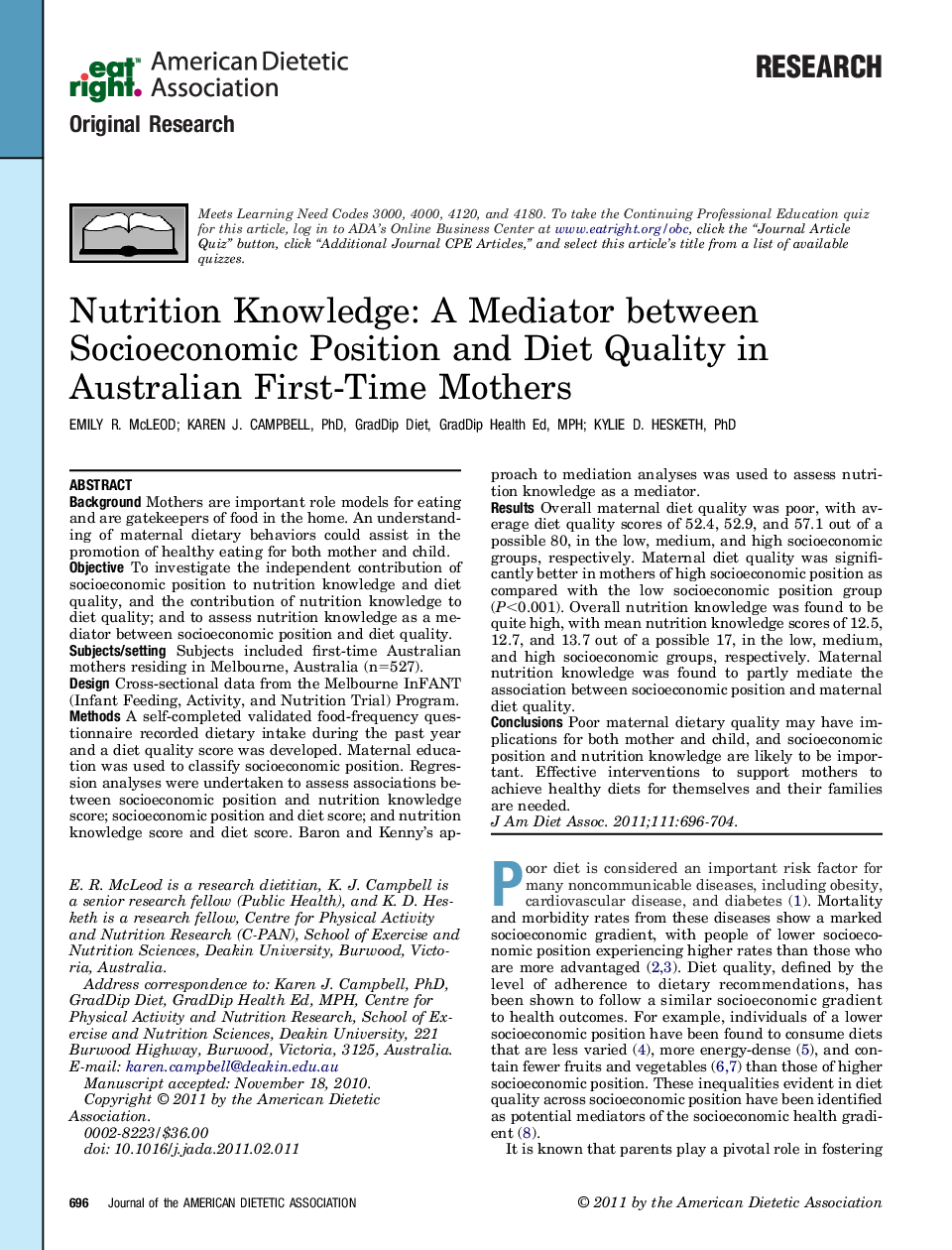| Article ID | Journal | Published Year | Pages | File Type |
|---|---|---|---|---|
| 2654255 | Journal of the American Dietetic Association | 2011 | 9 Pages |
BackgroundMothers are important role models for eating and are gatekeepers of food in the home. An understanding of maternal dietary behaviors could assist in the promotion of healthy eating for both mother and child.ObjectiveTo investigate the independent contribution of socioeconomic position to nutrition knowledge and diet quality, and the contribution of nutrition knowledge to diet quality; and to assess nutrition knowledge as a mediator between socioeconomic position and diet quality.Subjects/settingSubjects included first-time Australian mothers residing in Melbourne, Australia (n=527).DesignCross-sectional data from the Melbourne InFANT (Infant Feeding, Activity, and Nutrition Trial) Program.MethodsA self-completed validated food-frequency questionnaire recorded dietary intake during the past year and a diet quality score was developed. Maternal education was used to classify socioeconomic position. Regression analyses were undertaken to assess associations between socioeconomic position and nutrition knowledge score; socioeconomic position and diet score; and nutrition knowledge score and diet score. Baron and Kenny's approach to mediation analyses was used to assess nutrition knowledge as a mediator.ResultsOverall maternal diet quality was poor, with average diet quality scores of 52.4, 52.9, and 57.1 out of a possible 80, in the low, medium, and high socioeconomic groups, respectively. Maternal diet quality was significantly better in mothers of high socioeconomic position as compared with the low socioeconomic position group (P<0.001). Overall nutrition knowledge was found to be quite high, with mean nutrition knowledge scores of 12.5, 12.7, and 13.7 out of a possible 17, in the low, medium, and high socioeconomic groups, respectively. Maternal nutrition knowledge was found to partly mediate the association between socioeconomic position and maternal diet quality.ConclusionsPoor maternal dietary quality may have implications for both mother and child, and socioeconomic position and nutrition knowledge are likely to be important. Effective interventions to support mothers to achieve healthy diets for themselves and their families are needed.
